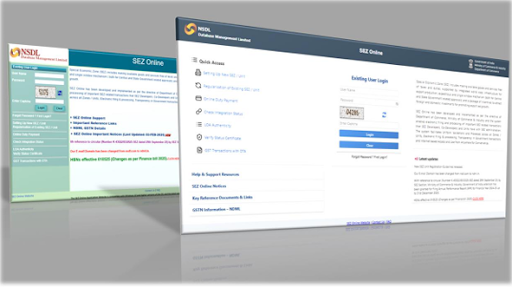India International Bullion Exchange (IIBX) Bye-Laws Explained: A Simple, Professional Guide
- GIFT CFO
- Jul 29
- 4 min read
Updated: Aug 7
INTRODUCTION
India’s first dedicated bullion exchange—India International Bullion Exchange IFSC Limited (IIBX)—is paving the way for modern, transparent, and global-standard trading in gold and precious metals. At its heart are the Bye-Laws: a comprehensive set of rules that govern everything from how trades are executed to how members are admitted, how disputes are resolved, and how consumer protection is handled.
This blog demystifies these Bye-Laws, making them easy to understand for businesses, participants, and anyone interested in how professional bullion markets operate.

What Is IIBX and Why Does It Matter?
IIBX is India’s premier platform for trading gold, silver, and other precious metals. It is located at the International Financial Services Centre (IFSC), GIFT City, Gujarat. By providing a tightly regulated and advanced venue, IIBX brings India’s bullion market into alignment with international standards, aiding transparency and efficiency.
What Are Bye-Laws?
Bye-Laws are official rules that define how the Exchange operates. They cover:
· Who can become a member and what they must do to stay compliant
· How trading, settlement, and risk management work
· How market integrity and consumer protection are maintained
· What happens in the event of disputes or defaults
Who Governs IIBX?
The Board of Directors is the top governing body, empowered to create committees for specialized functions like:
· Risk management
· Admission of new members
· Handling grievances and complaints
· Overseeing regulatory compliance
The Board ensures all Exchange activities match the standards set by the International Financial Services Centres Authority (IFSCA) and Government of India.
Membership: Who Can Join IIBX?
Bullion Trading Members
These are usually:
· Indian companies registered under prevailing company law
· Foreign entities that qualify under regulatory guidelines
Applicants must meet stringent financial and compliance criteria before being granted membership. The process involves:
· Formal application with supporting documents and fees
· Vetting by the Exchange for financial soundness and regulatory compliance
· Approval or rejection by the relevant authority
Membership is generally not transferable except in specific cases like mergers or restructuring, and any changes require Exchange approval.
What Are the Duties of a Bullion Trading Member?
Members must:
· Follow all Bye-Laws and Exchange regulations
· Maintain set financial standards (like capital and margin requirements)
· Submit required reports and undergo audits
· Pay annual and transactional fees
· Cooperate in inspections and disciplinary actions
Trading and Settlement: How Does It Work?
Electronic Trading
All trade in bullion contracts (like gold and silver) occurs electronically on the Exchange’s platform. Trading sessions, business hours, and types of products are pre-defined and can change as notified.
Clearing and Settlement
· Trades are settled through a clearing corporation or the Exchange’s clearing . / . division.
· Settlement may be on a net, gross, or trade-for-trade basis.
· A dedicated Settlement Guarantee Fund exists to ensure all trades are settled— even if a member defaults.
Delivery
Trades result in the transfer of actual bullion (or Bullion Depository Receipts) as per strict quality (“good delivery”) standards.
Market-Making Members: Keeping the Market Liquid
Certain members are authorized as Market-Making Members. Their role is to continuously provide buy and sell quotes, keeping the market liquid and prices competitive. These members have additional operational and compliance requirements, and their participation is closely monitored by the Exchange.
Risk Management and Consumer Protection
Margins and Limits
· Members must maintain margins (collateral) to manage market risk.
· There are strict operational parameters—such as trading limits and price bands—to avoid disruptions.
Consumer Education and Protection Fund
A unique feature is the Consumer Education and Protection Fund (CEPF):
· Provides compensation to clients if a member defaults
· Funded by member contributions
· Used for consumer education and awareness
Handling Defaults and Dispute Resolution
Default Procedures If a member can’t meet its obligations (due to insolvency, non-payment, etc.), the process is:
· Declaration as a defaulter by the Exchange
· Seizure and distribution of the member’s assets to settle outstanding positions
· Compensation to consumers through the CEPF
· Expulsion from the Exchange and prohibition from re-admission for a specified period
Dispute Resolution
Disputes—whether between members or between members and clients—are settled through arbitration, generally at international arbitration centers designated by the Exchange. This ensures speed and fairness.
Confidentiality and Compliance · All information about trading, members, and clients is kept confidential except where disclosure is required by law.
· The Exchange and its staff are protected from legal action when acting in good faith according to the Bye-Laws and government directives.
Communication and Updates IIBX releases all updates, rule modifications, and key announcements through official notices (“Communiqués”). These are binding for all members.
If changes occur in government or regulator policies, these overrides become automatically incorporated into IIBX's Bye-Laws and rules.
Illustrative Example: How a Breakdown Is Prevented Suppose “GoldValue Ltd.” is an approved Bullion Trading Member:
· GoldValue Ltd. executes several large trades but then fails to pay for a deal.
· The Exchange declares it in default after warnings.
· Its deposited assets and margins are used to settle outstanding trades.
· Any losses to clients are compensated by the CEPF up to a set limit.
· “GoldValue Ltd.” is expelled and cannot immediately rejoin.
· Creditors and clients recover dues as per priority listed in the Bye-Laws.
This process upholds trust and stability for all market participants.
Why Do These Rules Matter?
· Transparency: Ensures everyone plays by the same professional standards.
· Security: Protects clients, members, and market integrity from malpractice and insolvency.
· Fair Access: All credible players, local or international, get a level playing field.
· Alignment: Indian bullion trade aligns with global markets, giving confidence to . investors and regulators worldwide.
Conclusion
The Bye-Laws of the India International Bullion Exchange IFSC Limited are the backbone of a fair, efficient, and secure platform for bullion trading in India. They enshrine the Exchange's governance, member conduct, risk management, consumer protection, and dispute resolution in transparent terms.
Whether you are a company seeking membership, an investor, or a market observer, understanding these rules helps you recognize how IIBX safeguards India’s aspirations to be a key international bullion center.


























































































Comments